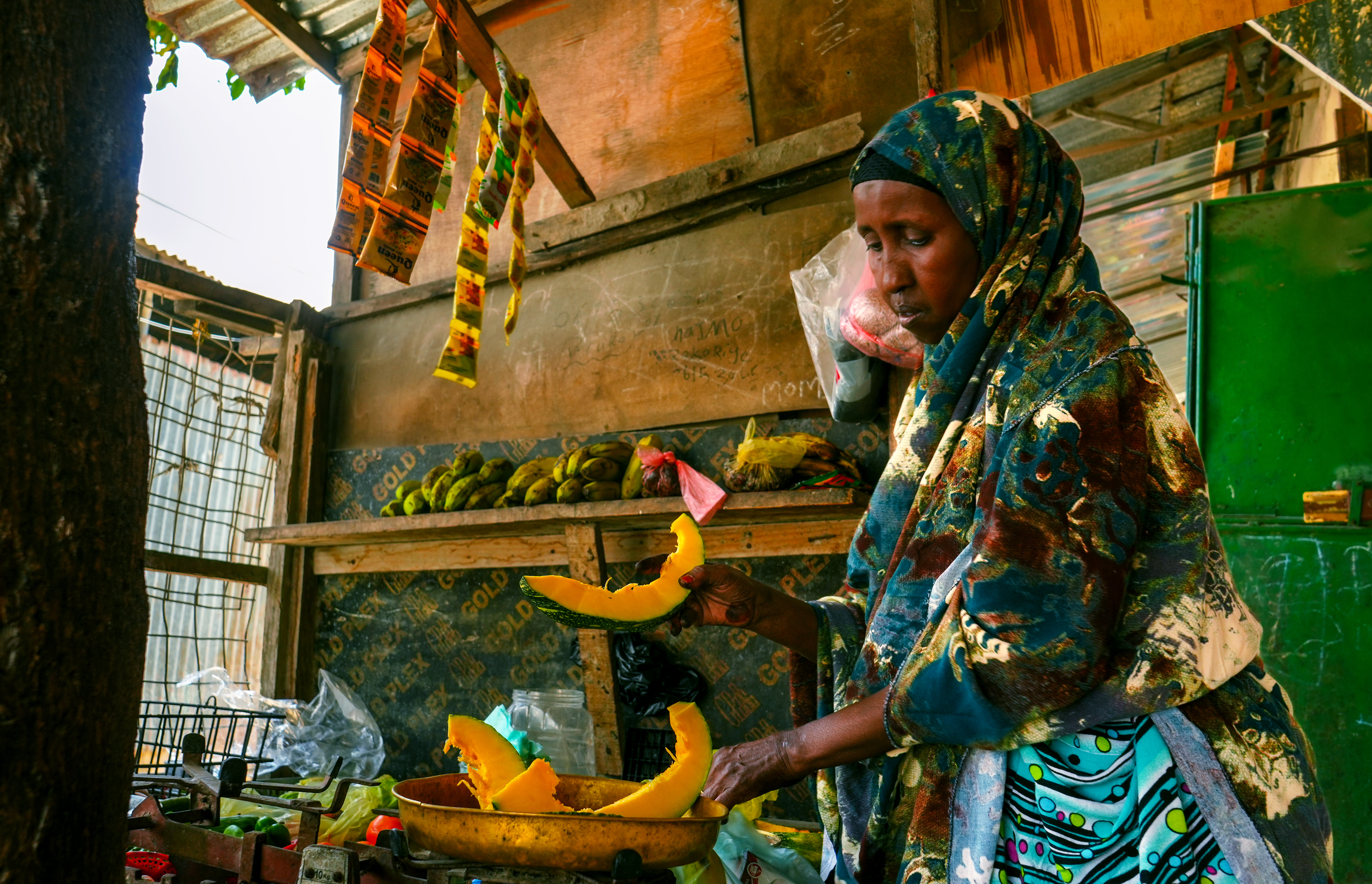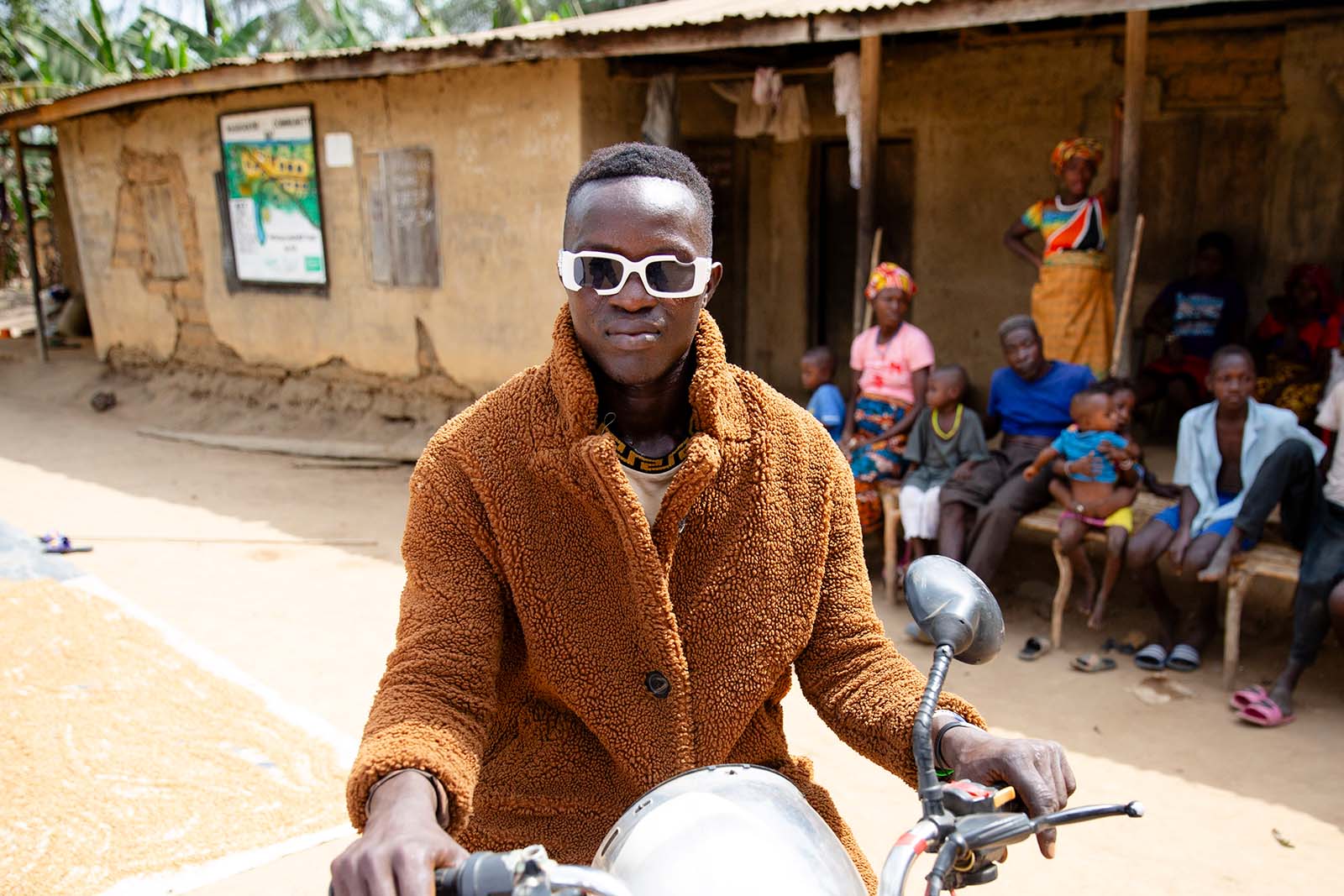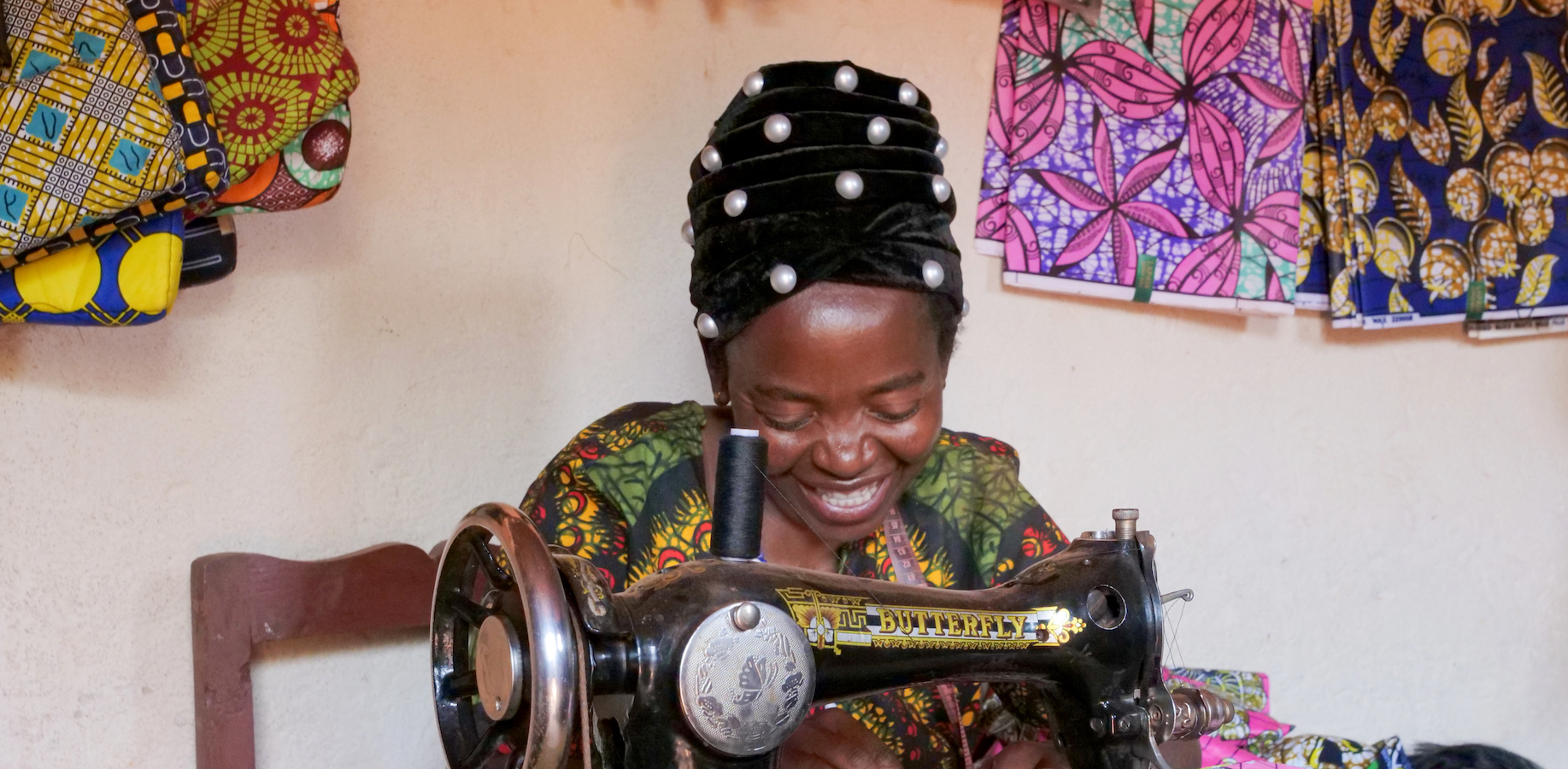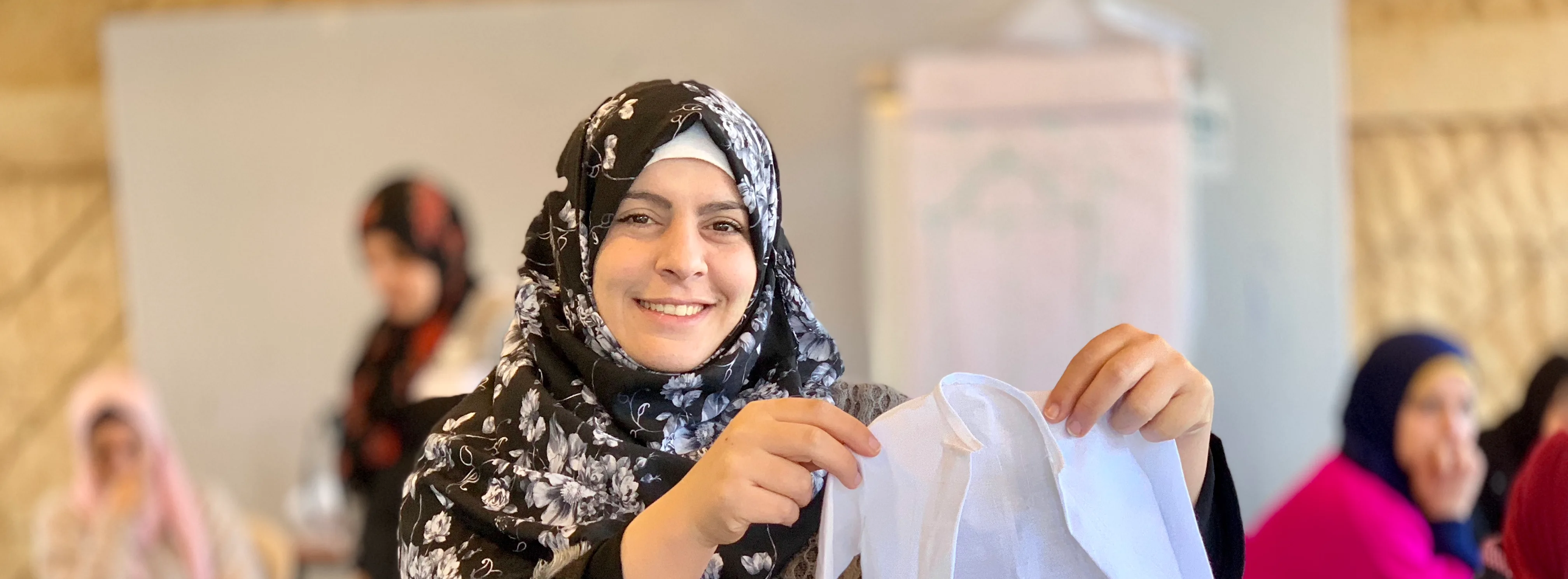13 years ago, Mako was a mother of six, unsure of how she could feed her family. Today, she’s telling other women to keep fighting.
As it set, the sun cast a warm, orange glow across the dusty streets in Mogadishu’s Bondhere district. The air was thick, and the sound of children’s laughter echoed from neighboring houses as 55-year-old Mako Mohamod Saney sat in her shop, looking at the horizon. She was thinking about the years of struggle and hardship she’d faced.
“I remember those days so well,” she says. “I didn’t know where to turn. My children were so young, and their father couldn’t work. The whole country was in turmoil, and I had nothing. It was a hard time.”
With six children and a husband unable to work, she felt trapped. The constant tension in the country, the ongoing conflict, and the fear of daily violence made everything feel precarious. She was especially worried about her children. “I couldn’t afford to take them to school or even to the hospital if they were sick.”
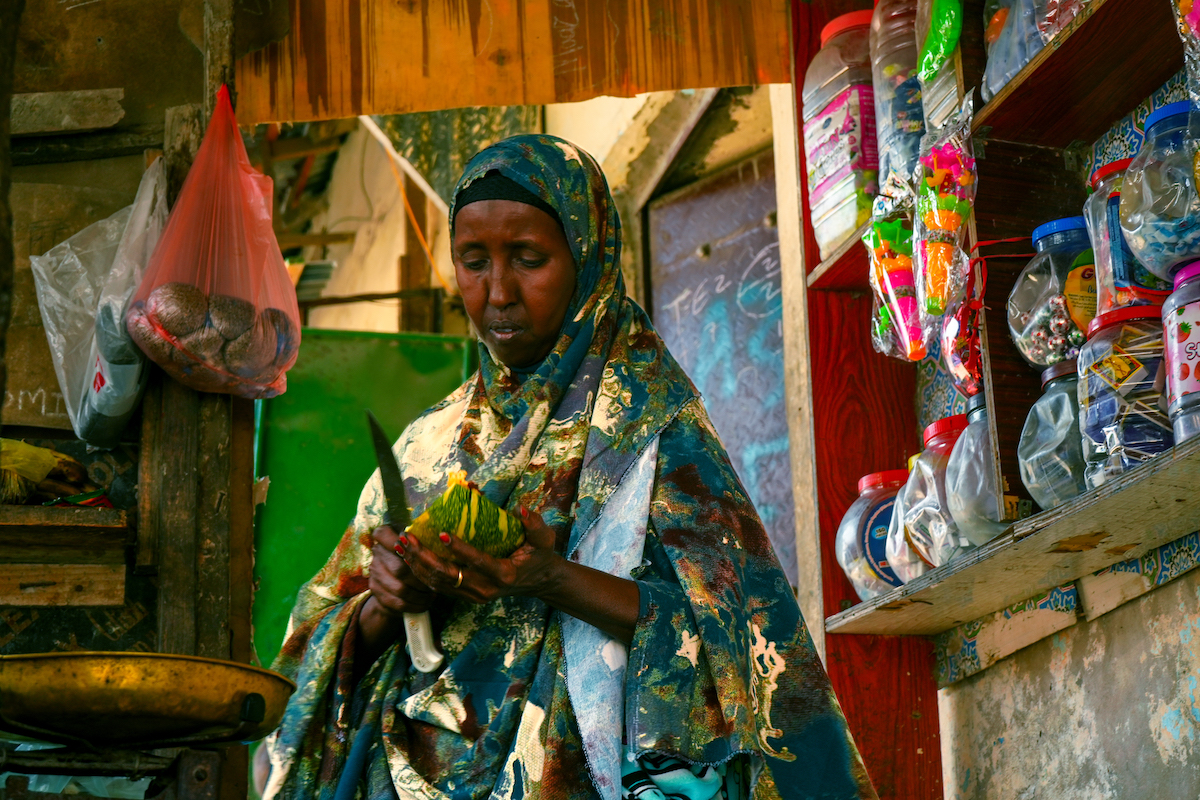
“I wasn’t sure what to expect… but I knew I had to try”
By 2012, Mako’s situation had become even more desperate. But at this time, Concern Worldwide was also beginning a new program in Bondhere, focusing on economically empowering vulnerable women in the community. Mako was curious, but unsure.
“I wasn’t sure what to expect when I joined the program,” Mako says. “But I knew I had to try. I hoped it would give me the chance to make a name for myself and break free from the constant struggle.”
“The whole country was in turmoil, and I had nothing. It was a hard time.”
At first, it seemed daunting. The program focused on entrepreneurship and business skills. As a self-described introvert, she didn’t know that she would be able to engage with others. “I didn’t know how to sell products or even how to talk to people. I lacked confidence.”
Ongoing insecurity and violence in the area also made things difficult. Whenever Mako went to the city center, where the markets were, she felt a sense of danger. “There was always a risk of an explosion or meeting thieves on the road.”
Abdikarim, Mako’s eldest son (now 32) also remembers this time as one of uncertainty. “I never knew if my mom would return safely after going to the market. But I knew she had to try, for us,” he says.
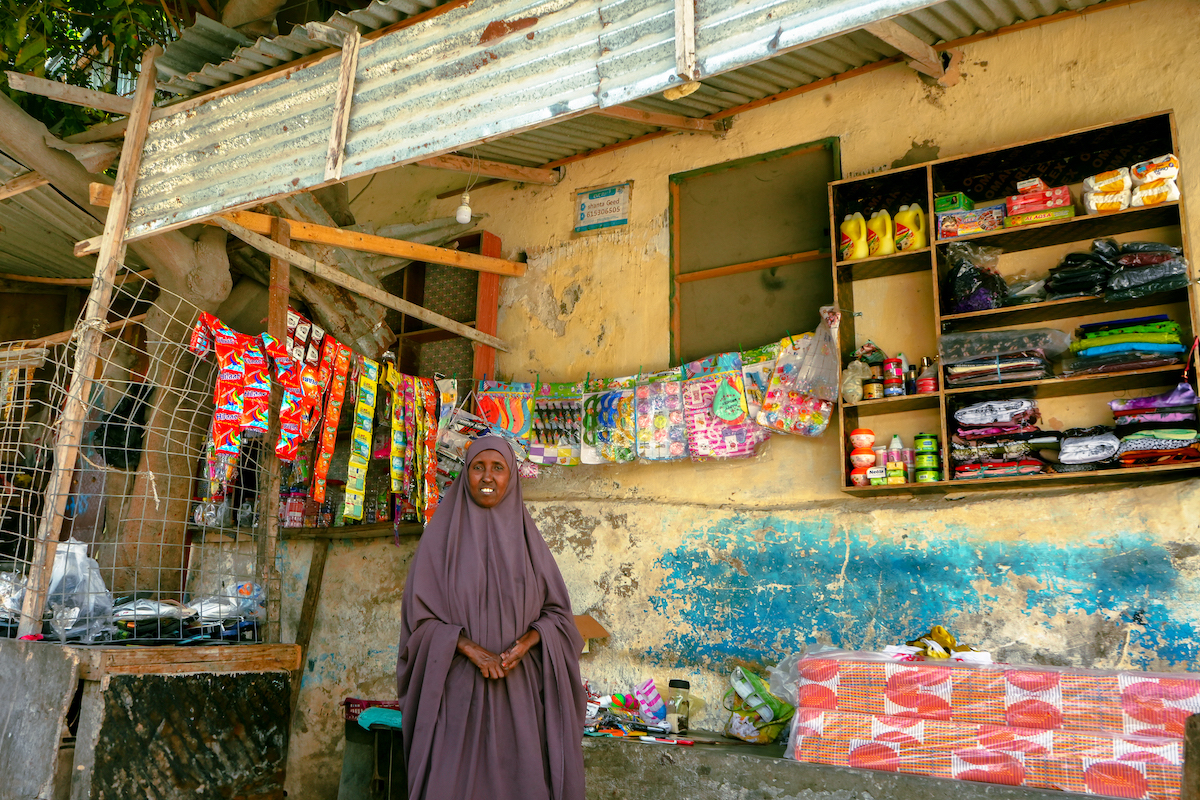
Courage from community
“I pushed forward,” Mako says, with a hint of pride. Abdikarim is even prouder: “She worked despite everything: despite the risks, despite the fear. I admired her courage.”
Part of that courage came from the Self-Help Group (SHG) that Mako found herself in as part of the program. It’s an approach that Concern uses often in livelihoods projects, especially those focusing on women. First, participants learn essential skills (like business development) individually. Then, they’re brought together in small SHGs where they support and learn from one another.
Beginning with just a handful of women, these groups often grow over time as women work together, share resources, and build collective businesses that empower them both individually and as a community.
“I never knew if my mom would return safely after going to the market.… She worked despite everything: despite the risks, despite the fear. I admired her courage.”
“We came together because we wanted to change our lives”
Mako’s group began as ten strangers. “We didn’t know each other at all, but we came together because we wanted to change our lives,” she says. They began small at first, selling household items at market. But soon, things began to expand. “The program helped us become more confident and capable. As we continued, we moved up.” The group eventually formed a cooperative. Under this, Mako runs her own shop.
This is one of the many success stories of the SHG model, which is designed to foster both individual growth and collective success. Participants begin by helping themselves. As they gain more skills, they’re able to help others. Through the program, Mako was able to learn how to manage her business, how to budget for both her shop and her home, and how to interact with customers. She became more than just a survivor; she became a provider.
“I was able to pay my children’s school fees and take them to the hospital when they needed care,” she says proudly. “I could buy food, provide for them, and even take loans from the bank — something I never imagined I’d be able to do.”
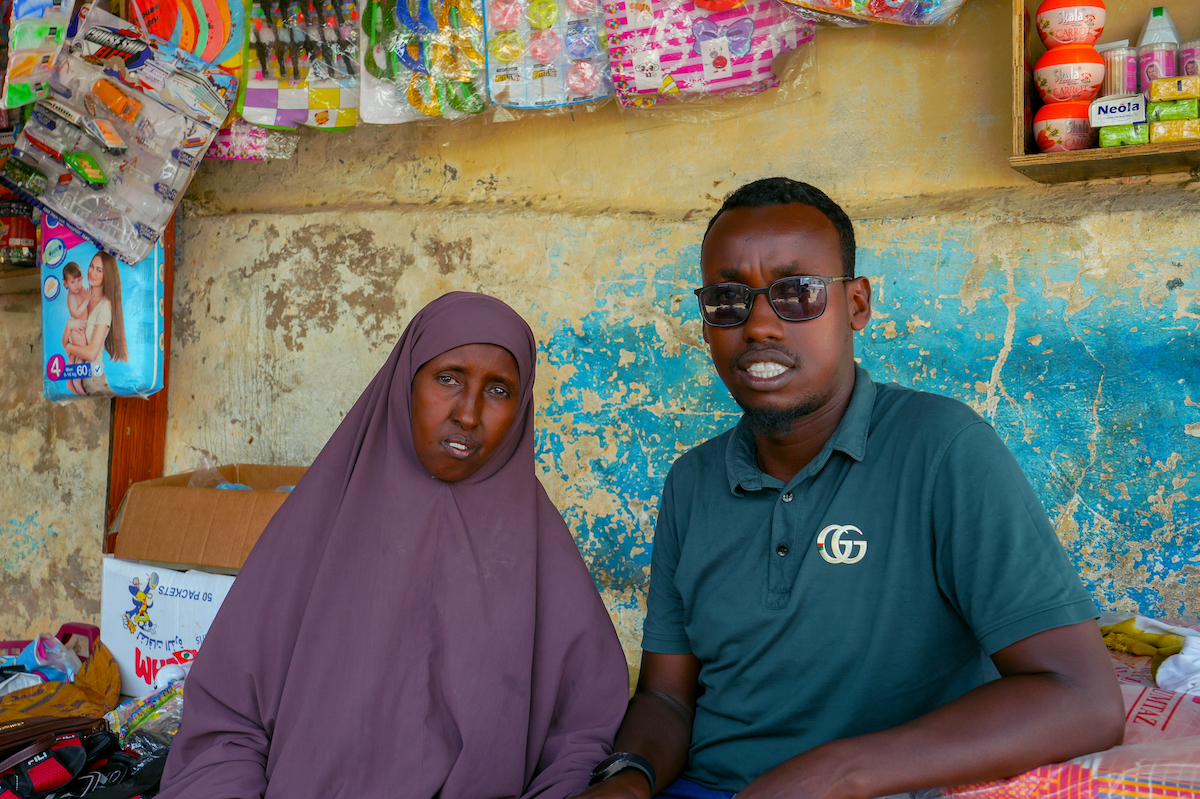
Thinking beyond survival
Mako’s transformation wasn’t just felt at home. She, along with her SHG colleagues, began to reach further out into their community. “During times of drought, we gathered supplies and assisted affected families,” she says. “I was no longer focused on my own survival; I was part of something bigger, helping others in my community.”
Abdikarim said the change was palpable. “Seeing my mom go from struggling to managing her own business was incredible. She started interacting with more people, gaining confidence — something I never imagined she would do before.”
“I was no longer focused on my own survival; I was part of something bigger, helping others in my community.”
Mako feels that confidence, especially when she talks about her children. The best part of all of this, for her, was seeing them not only go through primary school, but also university. Now a grandmother, she’s seen her children build their own lives and families. “I was able to go to university because my mother worked so hard,” Abdikarim says. “She saved me from becoming a dropout or a street boy.”
“They’re doing so well and I’m so happy to see them succeed,” Mako adds.
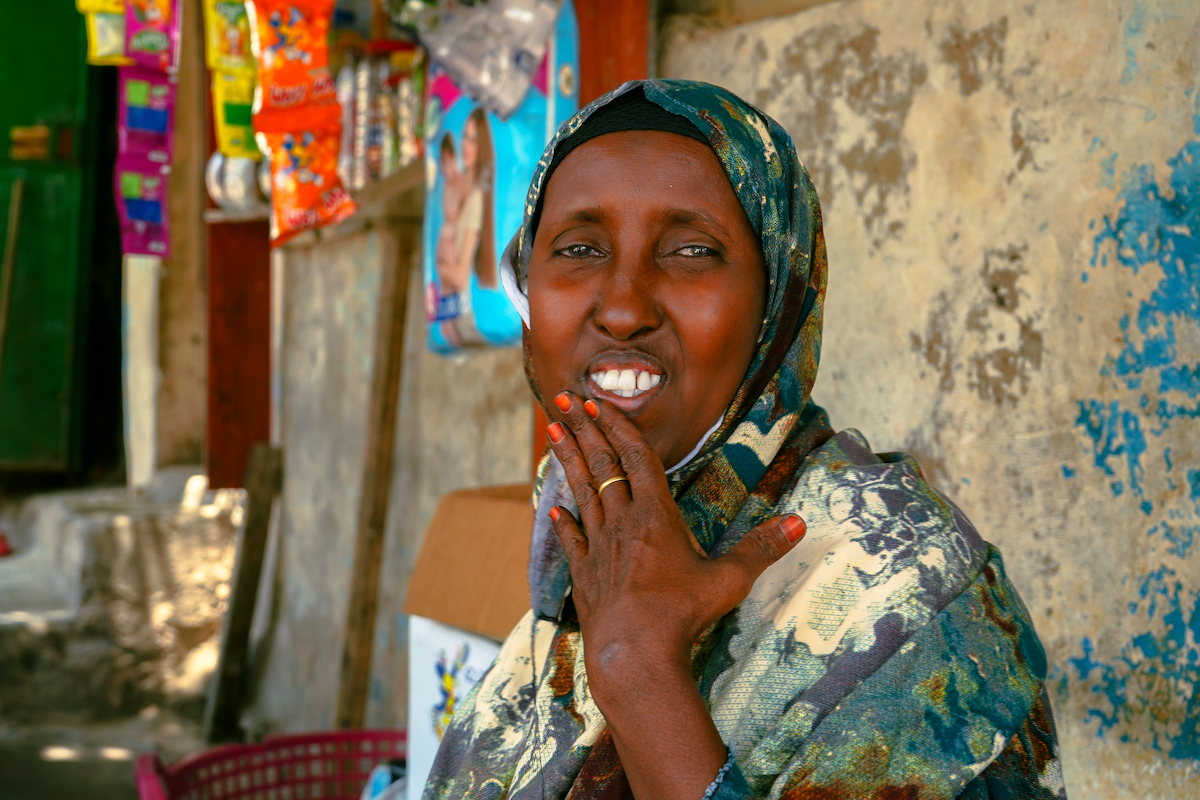
Opening doors
Today, Mako is a role model in her community, something she never would have dared to consider 13 years ago. “I never imagined that I would be where I am today. I didn’t think banks would call me to take loans, or that I’d be known in my community. But today, I’m proud of my journey. I feel like a winner.”
Her children are proud of her, too. To Abdikarim, she is “the reason our whole family is where we are now.”
But Mako also adds that her story isn’t the exception to the rule. Speaking to women who are in the position she was over a decade ago, she urges them: “Don’t lose hope. Keep fighting. Your hard work will open doors for others to walk through.”
She adds: “We as women are the backbone of society, and we have the strength to overcome anything.”

